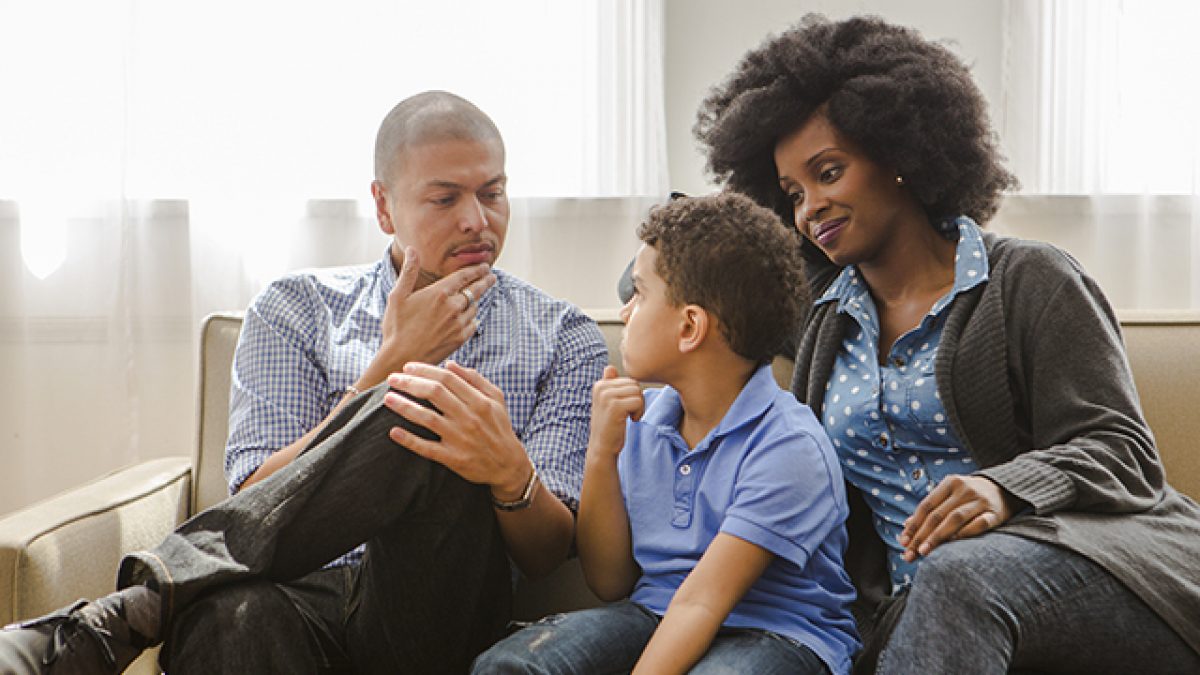How To Talk to Your Kid About Racism

These are tough times. Right now, as we speak, the internet is drilling your kid’s heads with posts on racism and unrest, from everywhere. It is an unsettling reality. But one we can no longer avoid.
As a responsible parent, it is time you address this topic with your kids. But how do you? The social media, newspapers, and TV have been full of depressing images of protests in the recent few days. We are sure your kids have raging questions too, and it’s only fair they do.
You may be trying your best to shun every source of radical news from reaching your kid. But that won’t work anymore. Children are a curious lot. Hiding anything from them – the speakable or unspeakable – will only fan their desire to know. And if not from you, they will find other sources – like consulting their friends, or much worse, the social media.
Here are a few sensible ways you can approach this sensitive topic and have a heart-to-heart with your children about racism (and its other facets) and other pressing realities of our times:
*All the things discussed in this post apply to all parents irrespective of skin color or racial identity.*
Don’t keep it hush-hush any more
The best way to approach this is to go right for it. Don’t make ‘racism’ a dangerous word around the household. Giving glaring glances upon hearing ‘racism’ and other related words will not do any good. As a parent, you don’t have to indulge in words like discrimination, blacks, whites, partiality, protest. But don’t ban it either. Instead, encourage healthy discussions. It’s important to share facts with children, in a way that doesn’t polarize them but keeps them open-minded.
Here are few things you should absolutely avoid doing at this time:
- Cancel magazine subscriptions all of a sudden, which children were used to seeing in the household
- Make a fuss about them watching television as usual (unless they are glued to the news)
- Becoming too strict and monitoring their every move. Stalking their phones & social media activity (applicable if your kids are teens or tweens) etc.
Basically, keep a free and healthy environment at home. Explain the facts they need to know – the right from wrong, good from the bad.
Talk to your kids like they’re adults and they will never again display anxiety or fear about the unrest.
Don’t brush off anything under the carpet or change topics – that could only backfire later.
Also Read: Why Children Should Learn Music During Quarantine
Allow them to voice their own opinion
Tweeting, posting statuses, and stories is a good way for teens and tweens to let out their opinions. Don’t put a ban on their social media. Here’s why:
- It’s not doable! Your child will anyway find a way to sneak behind your back and log into the social world any way they can.
- It does more harm than good if enforced by using fear tactics or punishment
But also, you mustn’t allow free use of social media which is rife with images of wanton vandalism, gruesome images, etc. To stop your kids from participating in meaningless and hate breeding slacktivism, do this:
- Encourage your child to express themselves in the form of articles, short writeups, poems and other forms of creative writing
- Ask them to send their write-ups to popular newspapers, blogs, etc.
- This will keep them engaged without exposing them to the ugly side of social media. Do NOT demonize social media at any cost. Instead, talk to your children about using it constructively.
Have healthy conversions with other grown-ups
This is one thing most people won’t advise others or think of. Your conversations in the house with your spouse and elders and even with your friends over calls are all being observed by your kids. Make sure that YOU practice a healthy and positive conversation even when you feel the kids are in another room.
Before you talk about racism and the nationwide scene, do a quick self-check:
- Don’t use any cuss words for any side (irrespective of whoever you think is guilty)
- Use positive language wherever possible; avoid phrases that bring out hints of ‘anger’, ‘despair’, ‘anxiety’ or ‘fear’
- Talk more about the ‘solutions’, rather than cribbing about how the world is falling apart.
Your child looks up to you. So the best way to encourage healthy feelings in them towards other races is to set an example yourself.
Check on your friends from other races and include your children in the calls. Make them feel that treating everyone equally is intrinsic to you and your family. Nothing will help allay your kids’ fears and doubts more than this!
Also Read: Quarantined and Homeschooling your Child? Here’s How to Start
Watch movies, read books that give a balanced view
Not all protests have an ugly side to them. There have been peaceful protests in the past. Talk to your kids about the uplifting side of protests. About how peaceful protests have started revolutions and brought about a great change in the. Show them examples of world leaders like Martin Luther King Jr., Nelson Mandela, and Mahatma Gandhi, all of whom were great role models for a peaceful revolution.
There are also several stories and movies that present all races together in a balanced view. Giving any ‘special’ attention to a particular race can be rather problematic. Instead, choose movies like ‘Pursuit of Happyness’ where a larger, inspiring a relatable story is told with a certain race playing a regular part. The movies and books will help greatly in taking away all the dark hype.
Don’t make blanket statements
To sound strait-laced and morally robust, parents often end up advocating a side more profusely than needed. For example, condemning the acts of the cops to an extent that your opinion starts generalizing all cops may be dangerous. Refrain from sentences like, ‘the cops are so bad” or “the cops are always like this”. It is important to tell your kids that not every policeman is the villain and they also help the public and keep everyone safe.
Make sure to highlight the wrongdoing and not the whole community to which the wrongdoer belongs. It is important to tell your kids that not all protestors break into stores and not all cops will harm them! These triflest things make most of the difference to the kids.
We hope these little things will help you address the raging issue of ‘racism’ while talking to your kids. Engage them in more creative activities than ever at a time when the world is reeling under such situations. Taking care of your mental health and well being is also of pivotal importance. Remember, a happy parent is always a good parent! Read, reflect, and act on what you think will help the world at large, but stay away from excessive polarising opinions or anything that arouses unnecessary fear in you or your family.
Meanwhile, feel free to hop on to Talentnook.com, and explore various things you can do during this time to help your child’s development. Get in touch with a tutor for online sessions that can help you keep your kids engaged in a productive way.

